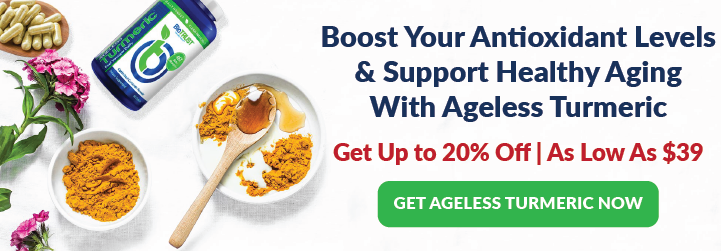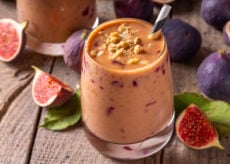Most Important Nutrients for Vibrant Aging

For many people, the thought of aging isn’t all that glamorous, yet aging is an unavoidable and often wonderful phase of life. When we picture ourselves aging, I’m sure we like to imagine an energetic, glowing, and vibrant older version of ourselves. With that depiction painted in our heads, why don’t we set ourselves up to age in the best way possible? One easy way to achieve that is through our food.
You see, proper nutrition is the foundation of a healthy lifestyle at any age. But, many do not know that our body’s reliance on certain nutrients changes throughout our lives. Even more concerning, as we get older, research has shown that adults tend to consume less nutrient-dense foods. Plus, our bodies have a decreased ability to absorb the nutrients we do consume.
But when we pack our diets with vibrant foods loaded with antioxidants, healthy fats, clean water, and essential nutrients, our bodies show their appreciation.
While specific nutritional needs vary from person to person, certain nutrients are generally important for older adults to prioritize. Here are 10 of the most important nutrients for vibrant aging:
- 1. Protein
Losing muscle mass and strength is common for older adults. Unfortunately, this decrease in muscle mass can affect mobility and independence, as well as increase the risk of developing other health conditions like cardiovascular disease and diabetes.
Protein is vital to maintain muscle. That’s why it’s so important to consume enough high-quality, protein-packed foods throughout the day, especially as you age. The expert-recommended amount of protein per day is at least 1.2 grams to 2.0 grams per kilogram of body weight. So, for instance, a 150-pound person would consume 82 to 136 grams of protein per day, and a 200-pound person would shoot for between 109 and 182 grams per day.
Good protein sources include quality meats, poultry, fish, eggs, tofu, legumes, nuts, and seeds. However, if you still struggle to consume enough protein throughout the day, supplementation with high-quality protein powders (such as BioTRUST® Low Carb and Ageless Multi-Collagen® are helpful tools.
2. Fiber
Fiber, commonly known for playing an important role in gut health and metabolic function, is also associated with better physical performance, increased longevity, improved cognitive function, and a decreased risk of developing cardiovascular disease. Foods like whole-grain bread, broccoli, avocados, apples, and berries are excellent sources of dietary fiber.
3. Water
Water, of course, isn’t a nutrient, vitamin, or mineral. That doesn’t make it any less crucial for good health. With age, the sense of thirst may decline, making dehydration more likely. Plus, if you are increasing the amount of fiber in your diet, water is even more important as fiber absorbs water.
The recommendation for older adults is to consume at least 56 ounces per day, which is equivalent to 7 cups/day. In addition, it’s a good idea to consume hydrating foods like celery, cucumber, and watermelon.
4. Vitamin D
One of the most common deficiencies worldwide is vitamin D. Diets deficient in vitamin D are associated with an increased risk of developing osteoporosis, cardiovascular disease, hypertension, and cognitive decline in aging adults. Unfortunately, older adults are especially prone to vitamin D deficiencies due to lack of exposure to sunlight, which may be due to a variety of reasons.
If you’re looking for a way to boost your vitamin D levels without sun exposure, Sol Joy ™—High-Potency Vitamin D + K2 Supplement is an easy addition to your daily routine. Likewise, other foods like salmon, sardines, eggs, and vitamin D-fortified milk are also a few of the vitamin D-rich foods you can include in your diet.
Current dietary guidelines suggest adults between the ages of 51 and 70 consume 600 international units (IU) of vitamin D each day. After the age of 70, that recommendation goes to 800 IU.
5. Vitamin B12
Vitamin B12 is a water-soluble vitamin that plays an important role in the health of older adults. Vitamin B12 is needed to make DNA, form red blood cells, and for proper nerve function. This vitamin is primarily found in animal products. Older adults who consume very little to no animal products (e.g., vegetarians) are often at an increased risk of a vitamin B12 deficiency.
Older adults do not require more vitamin B12 than younger adults, but absorption of vitamin B12 may decrease with age. The recommended intake of vitamin B12 assumes that only 50% of vitamin B12 is absorbed by the body. However, approximately 10 to 30% of older adults cannot absorb vitamin B12 through food sources. Therefore, it is recommended that older adults get at least half of their vitamin B12 through fortified foods or supplementation. That said, it’s still important to have a varied diet with vitamin B12-rich foods like fish, meat, poultry, eggs, and milk products.
6. Calcium
As we age, we tend to absorb less calcium from our diets, which can cause our bodies to remove calcium from the bones, making them weaker and more prone to fractures.
Although dairy products such as yogurt, milk, and cheese are most often associated with calcium, they aren’t the only options. Leafy green vegetables like collard greens and kale are other excellent sources of calcium, and you can also consume calcium-fortified foods like many cereals.
It’s recommended that women over the age of 51 consume at least 1,200 mg of calcium per day. The recommendation for men is slightly less at 1,000 mg for those aged 51 to 70 and 1,200 mg for those 71 and older.
7. Potassium
Potassium is one of the most important minerals. It’s needed for muscle contractions as well as normal brain, heart, and nerve function. Research has found that older adults who consume greater amounts of potassium in their diets generally have better health. This includes a reduced risk of osteoporosis, kidney stones, high blood pressure, and strokes. Yet, as we get older, kidney function can decline, which may affect potassium levels in the body.
If you’re searching for potassium-rich foods, consider adding more bananas, dried apricots, potatoes, and lentils to your meal plans. Just be aware that too much potassium in the diet may have other side effects. The recommended amount for all adults is 4,700 mg of potassium per day.
8. Magnesium
Magnesium has a key role in more than 300 different processes in the body. Ensuring you’re getting enough can help support your immune system, heart health, and bone strength. Many whole foods, including vegetables, contain magnesium. But it is often lost in processing.
With age, the body also isn’t as good at absorbing magnesium. Certain medications, including diuretics, may reduce magnesium absorption, and older adults are more likely to have these types of prescriptions.
To make sure you are getting enough magnesium, eat plenty of fresh fruits, vegetables, nuts, whole grains, beans, and seeds. You can also add in a magnesium-containing supplement like BioTRUST’s ZEN-ZZZ™.
9. Folate
Folate is a vital nutrient for proper nervous system functioning at any age. As we get older, though, it’s also important to have adequate levels to reduce the risk of depression, hearing loss, and decreased cognitive function.
Folate can be found in various foods, including meats, vegetables, fruits, beans, and dairy products. Specifically, foods like spinach, broccoli, avocado, and some fortified breakfast cereals are excellent ways to increase your folate intake. According to the current Dietary Guidelines for Americans, adults aged 51 years and above should consume the equivalent of 400 mcg of folate per day.
10. Omega-3 Fats
Omega-3 fats are unsaturated fats that provide a wealth of benefits, including potentially reducing symptoms of many chronic illnesses. You can help promote your body’s health by consuming at least two servings of fish a week, according to nutrition experts. Salmon, tuna, sardines, and mackerel are some of the seafood sources especially high in omega-3 fats.
However, if you are not much of a fish person, you can also get your intake of Omega-3s through BioTRUST’s OmegaKrill™—Pure & Potent Omega-3 Supplement featuring fish and krill oils. Each serving is packed with 1,040 mg DHA to support the brain, heart, eyes, joints, and immune system. In addition, some vegetable sources of omega-3 include soybeans, walnuts, flaxseed, and canola oil.
Yes, aging is inevitable (and certainly better than the alternative). It’s also something to embrace. Yet how and what you eat can greatly impact how well you age—to stay energized, vibrant, and healthy as the years go by.





 7 Signs Your Body is Seriously Low on Collagen (not just wrinkles)
7 Signs Your Body is Seriously Low on Collagen (not just wrinkles) Health Expert: "Turmeric Doesn't Work (unless...)"
Health Expert: "Turmeric Doesn't Work (unless...)" 3 Warning Signs Your Probiotic Supplement is a Total Waste
3 Warning Signs Your Probiotic Supplement is a Total Waste

